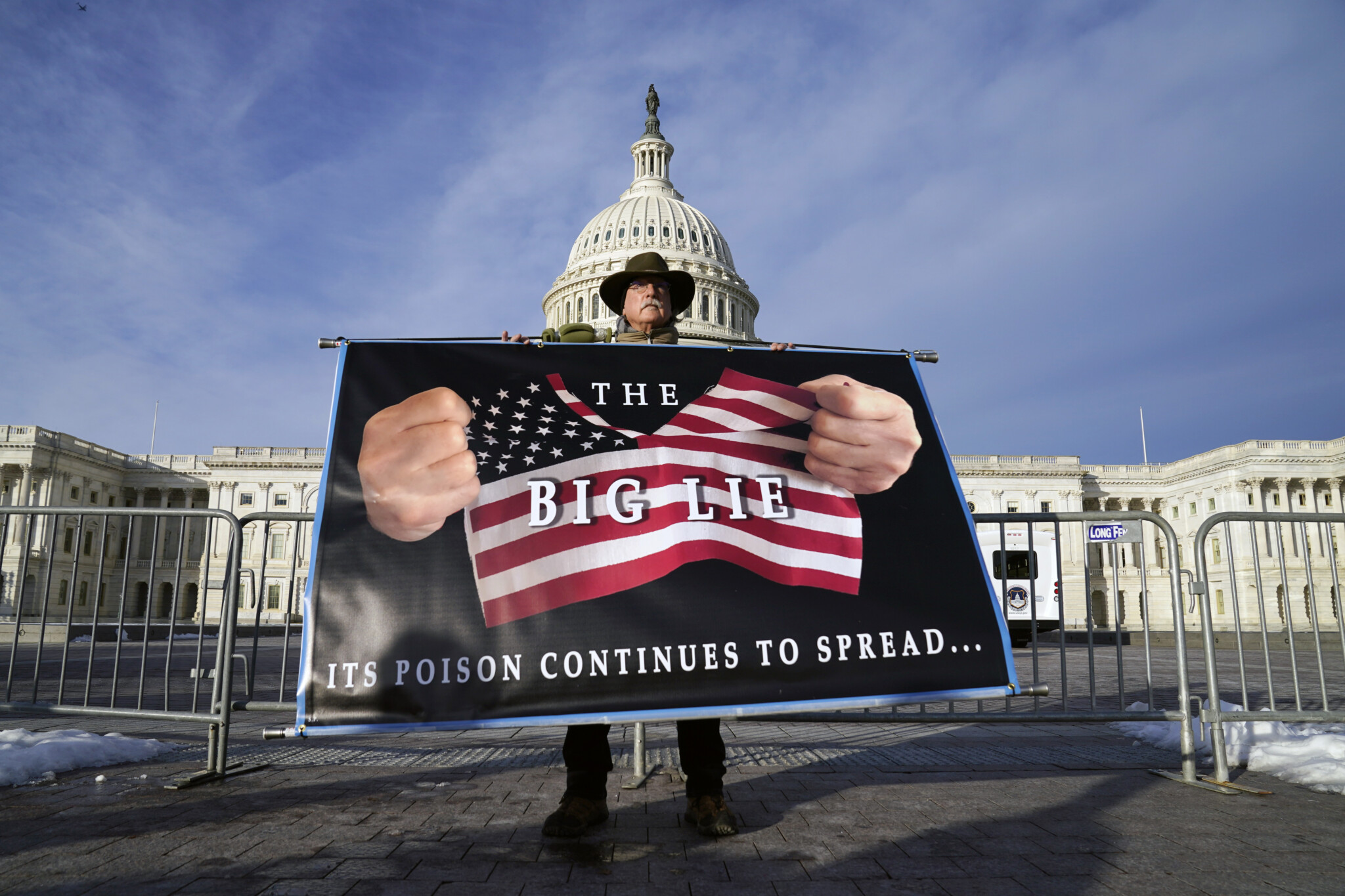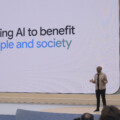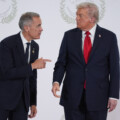In the latest Hub book review, Patrick Luciani examines Rebellion: How Antiliberalism is Tearing America Apart—Again (Knopf, 2024) by Robert Kagan, which examines the polarized political moment that America faces as they get ready for a particularly contentious presidential election and the historical forces that brought them to this perilous place.
Every American election is touted as the most important.
However, the 2024 rematch between Joe Biden and Donald Trump stands out, carrying a certain existential weight for the United States.
How did the U.S. get to a point where half of the electorate is prepared to vote for someone—now a convicted felon—who promises to reject the election results if he loses and will no doubt refuse to accept the legitimacy of the federal government? There’s no question that there are profound economic and social issues that have divided Americans, including the deepening divide between the rich and poor, especially since the Great Recession of 2008 and the destruction of middle-class jobs in America’s heartland.
Then there are the relentless political and gender identity policies that have pushed progressive ideas that have aggravated racial divisions and attempted to redefine long-accepted biological truths of what a woman is. The public is divided, and Congress seems nearly incapable of passing legislation that demands compromise with the other side. That the Ukraine war aid bill was passed earlier this year stands out as a near miracle.
However, there is another explanation other than Fox News or social media. In his latest book, Rebellion, Robert Kagan, a Brookings Institution scholar, argues that America’s current divide is rooted in the ideals of the American Revolution. For Kagan, the problem has always been the people and their beliefs.
A large segment of the population has never accepted the liberal principles laid out in the Declaration of Independence by America’s Founding Fathers. These principles claim all men are created equal based on natural rights that come with being human and not descended by providence, a monarch, or government. Slave-owning states never accepted the inherent equality of all; they insisted on a society dominated by whites and a patriarchy centred on Protestant Christian belief. They held firm in values from their ancestral homes of England and Scotland.
The idea of liberalism, as defined by Thomas Jefferson and inspired by John Locke, wasn’t simply an “outgrowth of Western Culture, the European Enlightenment or even the English constitution.” Liberalism wasn’t an inevitable or a natural progression of human political development, as Kagan emphasizes. The Founding Fathers knew the Declaration was essentially an aspirational document, hoping it would, in time, come to be accepted by all citizens. The ideals of the Declaration took hold in the North but were never accepted in an antiliberal or illiberal South where God and faith were at the centre of life.
States that allowed slavery believed the idea of universal, equal rights was a sham and an absurdity “that was contradicted by all human history.” The South thought the North was out of step with the broad sweep of history. But it was the South that was out of step—until now.
Once dormant for too long, antiliberalism is now on the verge of winning with the help of a Constitution and Electoral College initially designed to protect the minority. For many Republican Evangelicals, God had intervened in public affairs and sent a leader to save their country.
Historically, the Republican Party could always keep marginal but large segments of its members from electing disrupters and outsiders to its leadership. That party, now firmly under Trump’s control, can no longer claim to unsparingly uphold the Constitution. It seems all too willing to overthrow the system if necessary, as it tried to do on January 6, 2021.

A protestor holds his sign at the Capitol, Thursday, Jan. 6, 2022, in Washington. Evan Vucci/AP Photo.
Kagan puts most of the blame not on Trump but on once moderate Republicans who are too weak and timid to save their party. If Trump wins, it will be because the Republican voter let it happen.
But Kagan lets Democrats off too easily. Democrats under Bill Clinton and Barack Obama have ignored signs of a divided America as an aberration to be ignored rather than understood and confronted. Flyover country wasn’t the future; obsessions with the environment and progressive social issues were.
While coastal democratic elites on both coasts got most of the wealth and good jobs, they ignored a growing segment of the white middle class suffering from declining incomes while government bureaucrats obsessed over transgender bathrooms and diversity programs that discriminate against whites and Asians. Excellence was no longer a priority; equity was. Democrats seem helpless in stopping the shift from protecting individual rights to group rights, a tension at the heart of modern liberal democracies.
Kagan also blames recent American immigrants, once loyal to the Democratic party, who now clamour for closing the immigration gates behind them. Even Left academics such as the late American philosopher Richard Rorty, no lover of conservatives, believed universities had gone too far in “sensitizing students to cultural differences” to the point that whites are psychologically damaged because of their skin colour. We see the results of campus revolts throughout North America.
Kagan believes that Trump carries the virus of American antiliberalism, and presents a clear and present danger if he retakes the White House. In the long run, Kagan is sure that future demographics still favour a multiracial and multicultural America. Regardless of who wins in November, America’s immediate future is in for a rough ride, along with the liberal dreams of America’s founders. For that, we can blame both parties.
Recommended for You

Scandalous politicians could finally face serious consequences if this Supreme Court case is won, says democracy watchdog

Don’t downplay the costs of the AI revolution: The Weekly Wrap

‘It’s in the Liberals’ interest’: The Roundtable on whether Trump’s antics will trigger an early election

‘Immense horror’: Iranian regime marks 47 years of Islamic rule amidst mass killings of protestors





